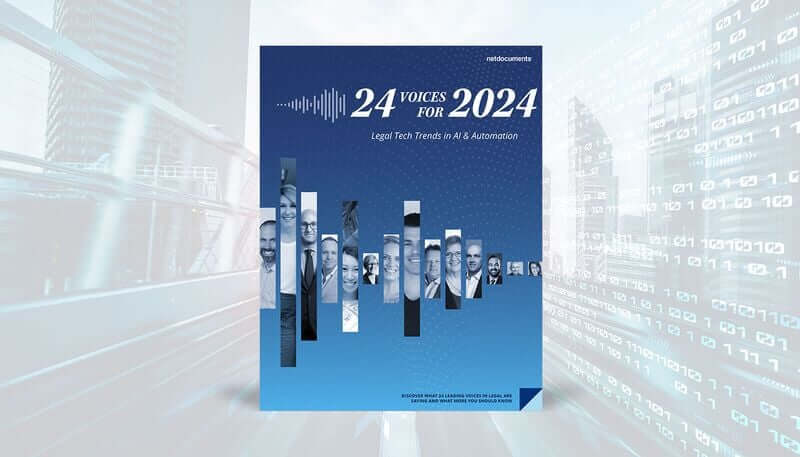
2024 Legal Sector Trends in AI & Automation
The fast pace of the modern world can be seen as being relentless. It’s no secret that legal departments and law firms face new challenges and have pressures to increase efficiency and return additional value. The quest to keep ahead of the changing environment is demanding, and legal teams seek ways to meet their goals while reducing burnout.
The legal sector has sought to embrace technology to address their challenges while optimising productivity and making their work more agile and enjoyable. The technology landscape has made a quantum leap forward, with AI being a critical change component in reshaping nearly every aspect of the profession — from law school programs to how services are provided to the law firm business model itself.
Legal teams and law firms that harness the transformative technology will be best positioned to thrive in the future state of the legal profession.
NetDocuments has compiled a report, “ 24 Voices for 2024”, featuring thought leaders across the industry focusing on three primary areas regarding AI and the legal profession.
- The rise of AI in legal
- Putting AI into practice
- AI’s impact on professionals
Within these areas, nine trends have been identified that are creating seismic change and have the potential to drive unprecedented productivity, empowering teams to be more strategic and deliver better outcomes.
Read what the 24 experts state, why these trends matter and how to prepare.





